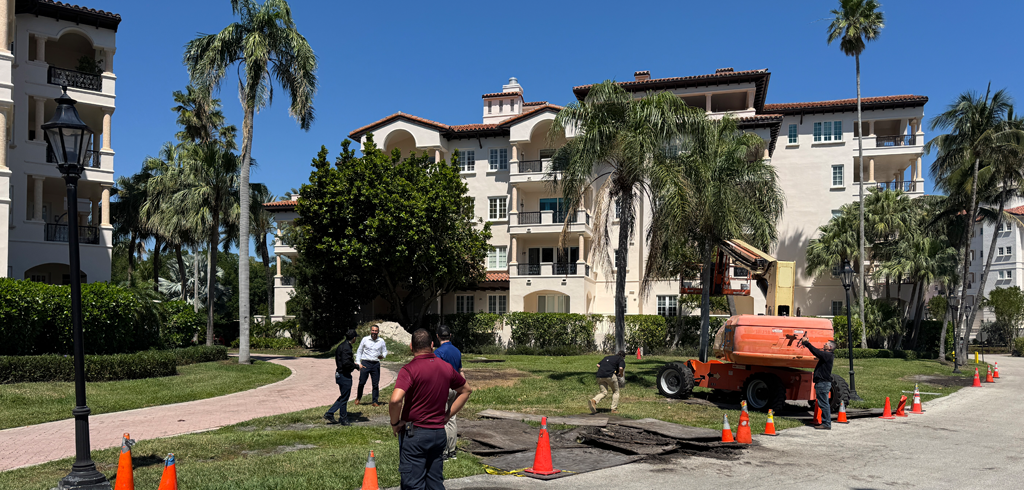Condo Vs. Hotel Construction: Key Differences You Should Know

The world of property development offers a range of opportunities, and few are more distinct than the paths of condo and hotel construction. While both building types serve residential or lodging purposes, the processes involved, from planning to completion, differ substantially.
Understanding these distinctions is essential for property managers, condominium associations, and building owners. Each project type comes with its own regulatory, design, and operational demands, requiring informed decision-making from the earliest stages of development.
Zoning and Land Use Considerations
Zoning laws serve as a foundational element in property development, influencing what can be built and how it can be used. Condominium projects typically fall under residential zoning classifications. These regulations govern aspects like building density, setbacks from property lines, parking space requirements, and overall land use tailored to long-term living.
In contrast, hotel projects generally require commercial or hospitality zoning, which introduces different standards. These may include rules on signage, accessibility, guest drop-off zones, and traffic flow, all of which are critical for transient accommodations. Developers must carefully review and comply with the specific zoning requirements for each project to avoid costly delays and ensure regulatory approval.
Structural Design Influenced by Use
The purpose and expected occupancy of a building strongly shape its structural design. Condominiums are constructed with individual ownership and long-term residency in mind, so privacy, durability, and comfort take center stage. Soundproofing between units, robust materials, and features tailored for everyday living are often priorities.
Hotels, on the other hand, are built for short-term use and frequent guest turnover. Their design emphasizes efficient layout, ease of maintenance, and rapid room access. As a result, the two types of buildings often differ in their load-bearing specifications, fire resistance requirements, and choices of interior materials. These functional distinctions drive unique engineering and architectural approaches for each development.
Compliance with Building Codes and Safety Standards
Both condominiums and hotels must adhere to comprehensive building codes, but how those codes apply can vary based on the nature of the occupancy. Hotel developments, which host transient guests in high volumes, are subject to strict fire safety requirements, including advanced suppression systems, emergency lighting, and easily accessible exits. The high turnover and density of occupants demand robust alarm systems and adherence to accessibility regulations.
Condominiums also follow strict codes, but the focus tends to be on long-term habitability, structural longevity, and shared space safety. The differences in occupancy type shape how safety and compliance are interpreted and enforced, requiring developers to plan accordingly.
Planning for Amenities and Shared Spaces
Amenities are another major differentiator between condo and hotel development. In condominium communities, amenities are tailored for permanent or long-term residents. Features like fitness centers, clubhouses, swimming pools, and meeting rooms are common, and they are often overseen by a homeowner’s association.
Hotels, however, emphasize services that enhance short-term guest experiences. These can include on-site dining, business lounges, spa facilities, and concierge services. Because guests expect convenience and comfort during a brief stay, hotels tend to focus on easily accessible, high-impact shared spaces.
In contrast, condos prioritize lifestyle amenities designed for repeated and sustained use. The design and function of common areas must align with these differing expectations and occupancy patterns.
Budgeting and Project Timelines
The financial models and construction timelines for condos and hotels reflect their distinct development strategies. Condominium projects often follow a phased approach, where units are pre-sold or sold progressively throughout construction. This strategy can help with cash flow and reduce upfront capital requirements.
Hotel construction, on the other hand, usually requires significant upfront investment and must be completed quickly to take advantage of peak market seasons. The timeline is often more compressed, requiring fast, efficient project execution.
Variables such as labor costs, construction materials, and the complexity of mechanical systems can all impact the total cost and duration of the build. Accurate budgeting and careful planning are essential to the success of both types of projects, though the financial dynamics differ substantially.
Build Your Vision with Stone Building Solutions
Are you planning to embark on a condo or hotel construction project in Florida? Stone Building Solutions offers unmatched expertise in both sectors, helping clients navigate the complexities of modern property development. Our team monitors high-quality builds with a focus on precision, durability, and luxury, ensuring that your vision is realized down to the smallest detail. Whether you’re developing a high-end condominium community or a state-of-the-art hotel, we provide the support and experience you need to succeed.
Contact Stone Building Solutions today and discover why we’re recognized as one of Florida’s leading condo and hotel construction monitors. Your project deserves the very best, and we’re here to deliver.
